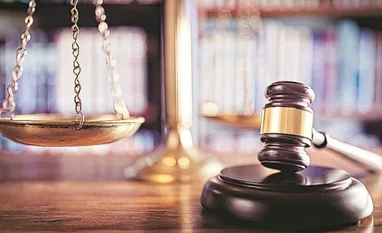The Delhi High Court has dismissed a PIL seeking voting rights for prisoners, saying the facility was provided under the law and it can be taken away by law.
A bench of Chief Justice D N Patel and Justice C Hari Shankar said the Supreme Court has held that the right to cast vote was neither a fundamental right nor a common law right and was only provided by a statute.
The bench noted the right to vote provided under the statute Representation of the People Act was subject to restrictions imposed by the law, which does not allow prisoners to cast vote from jails.
The high court said in view of the apex court rulings and the statutory position, it saw no reason to entertain the plea, and dismissed it.
The decision came on a plea by three law students Praveen Kumar Chaudhary, Atul Kumar Dubey and Prerna Singh seeking voting rights for all persons lodged in jails across the country.
The petition challenged the constitutionality of Section 62(5) of the RP Act, which deprives prisoners of their right to vote.
More From This Section
The Election Commission opposed the plea, saying prisoners do not have voting rights under the Act and it has been upheld by the Supreme Court. The panel told the court the right to vote is a statutory right under Section 62 of the RP Act and "being a statutory right (it) is subject to restrictions prescribed in the RP Act".
The panel referred to a 1997 judgment of the Supreme Court, which held that the effect of sub-section (5) of Section 62 of the Act is that any person confined in prison while serving a sentence or is in lawful confinement in a prison or in a police custody for any reason is not entitled to vote in an election.
But this restriction does not apply to a person subjected to any kind of preventive detention, the apex court judgment said.
)